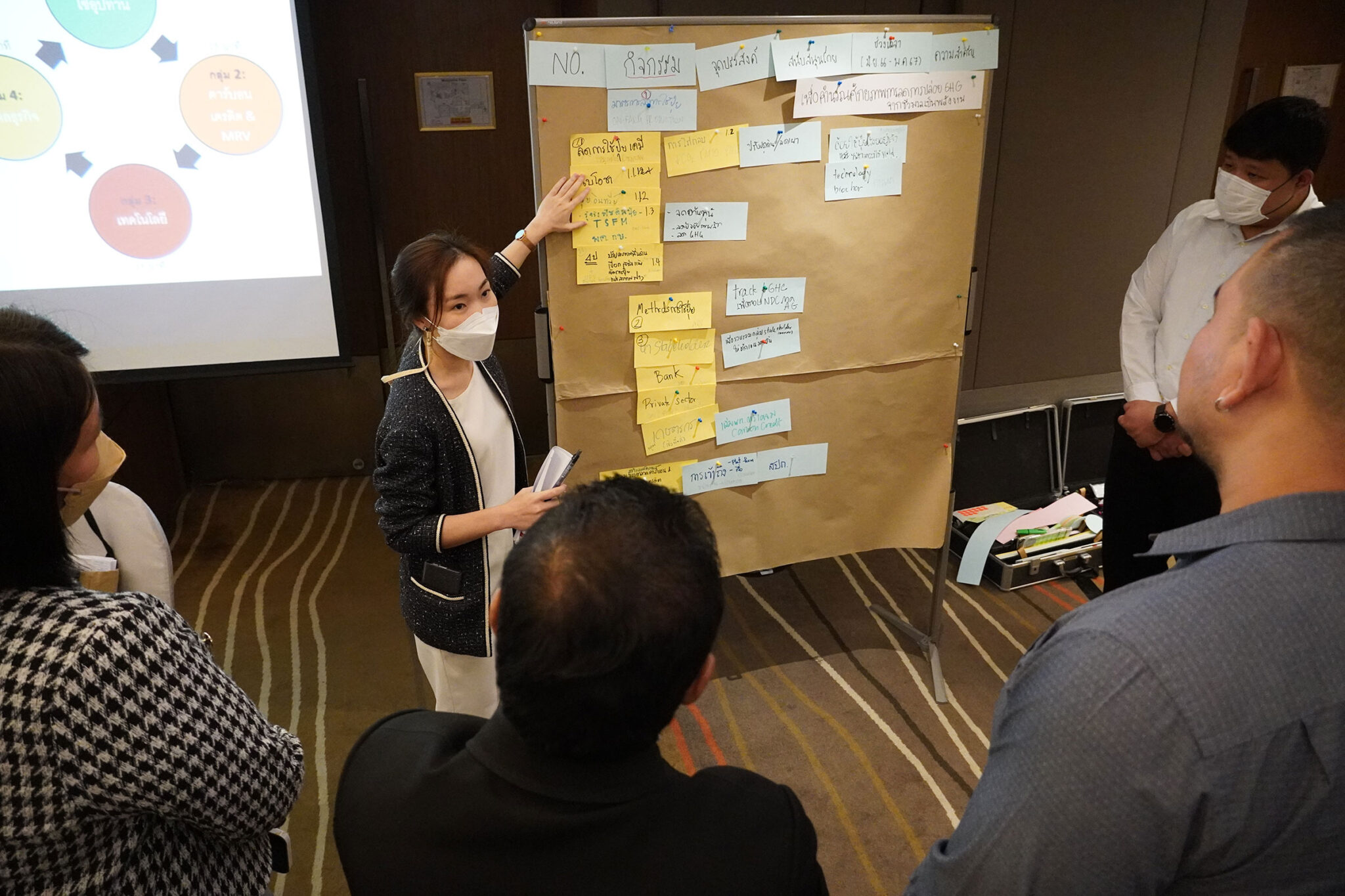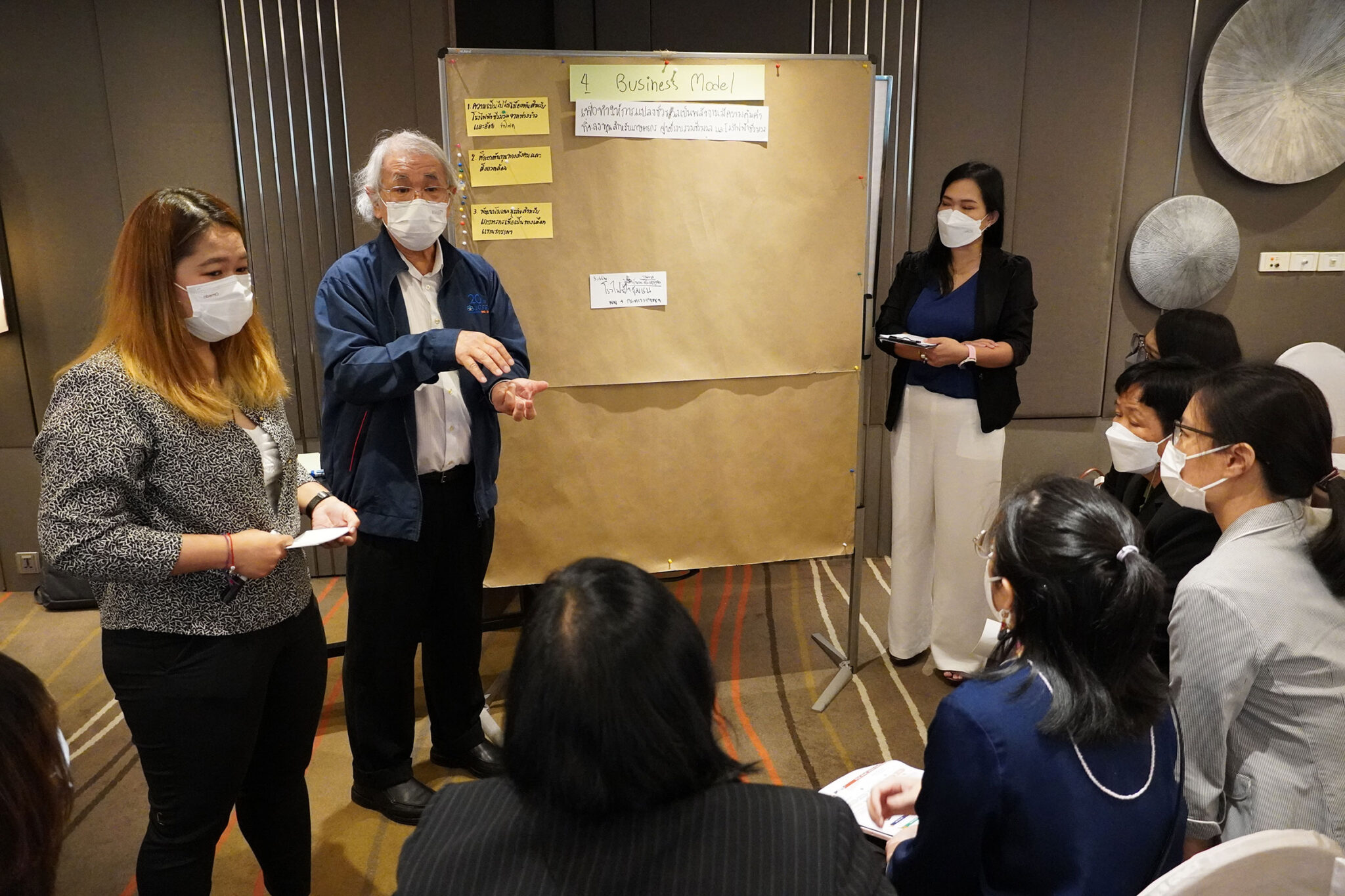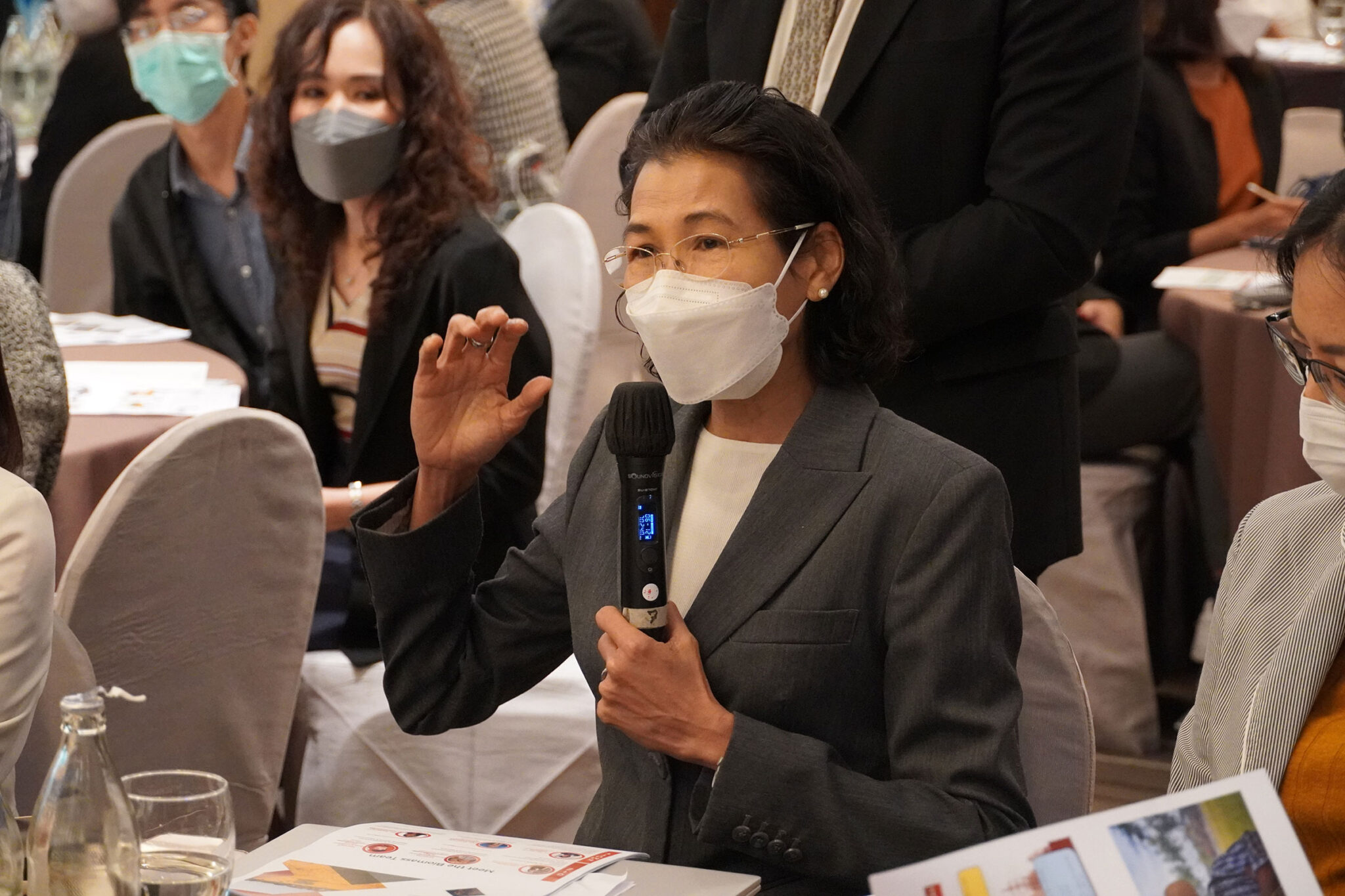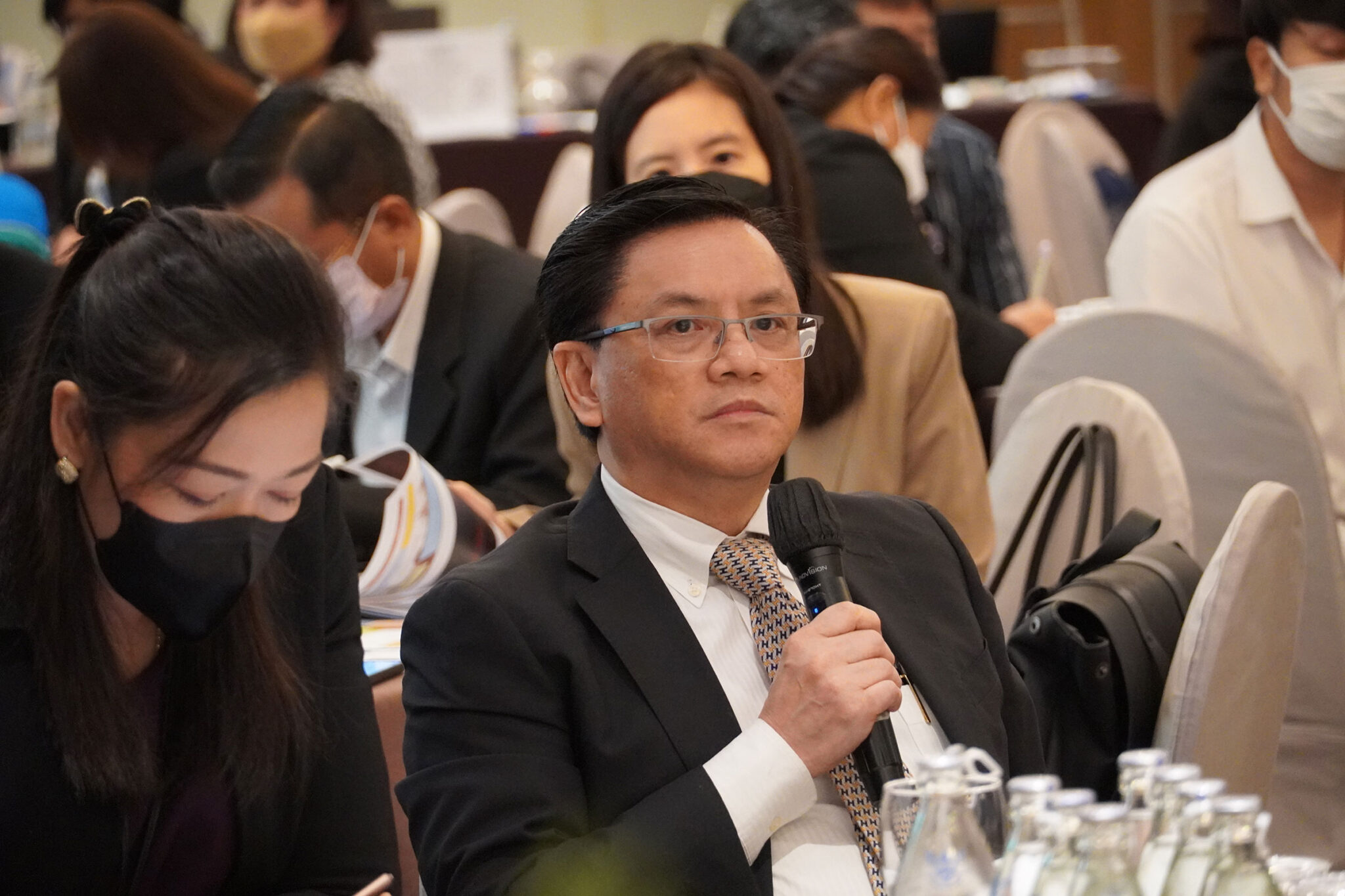TGC-EMC Biomass Project: A Collaborative Effort towards Thailand’s Renewable Energy Goals from the Agriculture Sector
Thailand has taken a bold step towards achieving its climate goals by pledging to reduce its greenhouse gas (GHG) emissions by 30% against Business as Usual (BAU) levels by 2030. However, with most of its electricity generated from fossil fuels, the country needs to transition to renewable energy to achieve its targets. To support Thailand in this transition, the Thai-German Cooperation on Energy, Mobility, and Climate (TGC-EMC) was established.

Mr. Peeraphan Korthong, Deputy Permanent Secretary of the Ministry of Agriculture and Cooperatives, made opening remarks and welcomed participants.
The TGC-EMC Programme is a collaborative effort between Thailand and Germany with the goal of expediting Thailand’s transition to sustainable economic growth in the field of energy. This programme encompasses five components, namely biomass, renewable energy, industry, transportation, and finance. The biomass component focuses on increasing Thailand’s share of renewable energy by promoting and utilising agricultural residues (from rice, sugarcane and other), as viable biomass resources for sustainable and renewable energy production. By harnessing biomass as an energy source, numerous advantages are expected to be achieved, including the reduction of greenhouse gas emissions in both the agricultural and energy sectors, diversification of farmers’ income, and mitigation of air pollution.

Ms. Uratcha Prasithpongchai, Project Coordinator of Biomass Component (TGC-EMC), Agriculture and Food Cluster GIZ Thailand, moderated the discussion on the Carbon Credit and MRV topics during the break-out group session.

(The second person from the left) Dr. Boonrod Sajjakulnukit, consortium of biomass component, King Mongkut’s University of Technology Thonburi, moderated the discussion on business models during the break-out group session.
During the biomass component’s preparation phase in 2023, GIZ and the King Mongkut’s University of Technology Thonburi (KMUTT) organised a one-day Operational Planning Workshop of the TGC-EMC Biomass component on May 3rd, 2023. The event aimed to set up a dialogue with partners from various departments, including the Ministry of Agriculture and Cooperatives, Land Development Department, Rice Department, Department of Agriculture, Department of Agriculture Extension, Office of Agricultural Economics, Agricultural Land Reform Office, Office of the Cane and Sugar Board, Department of Alternative Energy Development and Efficiency, and Office of Natural Resources and Environmental Policy and Planning.

Mr. Johannes Kerner, Counsellor for Economic Affairs, Embassy of Germany in Thailand, made opening remarks and welcomed participants.
The objective of the workshop was to provide a project update, gather feedback and suggestions on proposed activities, and develop an implementation plan that aligns with the policies of each partner. This event also served as a platform for stakeholders to converge and discuss the progress and future of the TGC-EMC Biomass project.

Dr. Nana Kuenkel, Director and Cluster Coordinator of Agriculture and Food at GIZ Thailand, provided participants with an overview of the Thai-German Cooperation on Energy, Mobility, and Climate (TGC-EMC) programme.
The workshop featured presentations on the TGC-EMC Programme and its Biomass Component, as well as group discussions on planned activities on topics such as supply chains, carbon credits and MRV, technology and business models. This facilitated a common understanding of the project’s objectives and enabled participants to align their plans accordingly. Concluding the workshop, an operational plan for the first year (2023-2024) was established, outlining the next steps for the project. The joint implementation of these steps will be implemented by GIZ and the King Mongkut’s University of Technology Thonburi (KMUTT).

Ms. Sairak Chailanggar, Director Division of Technology Agricultural Resources and Environment Economics Research, Office of Agricultural Economics, shared her comments during the workshop.

Mr. Yuthasart Anuluxtipun, Director of Research and Development for Land Management Division, Land Development Department, shared his opinions during the workshop.

